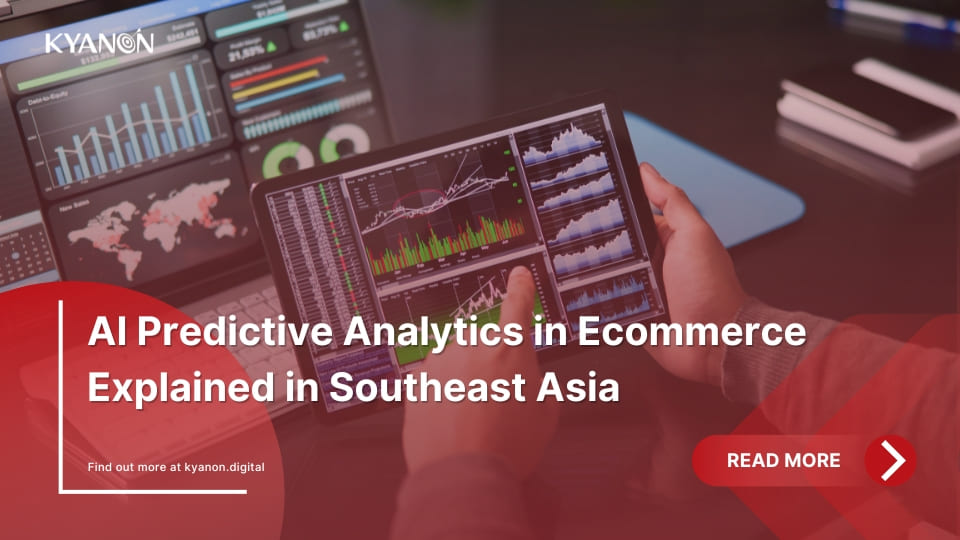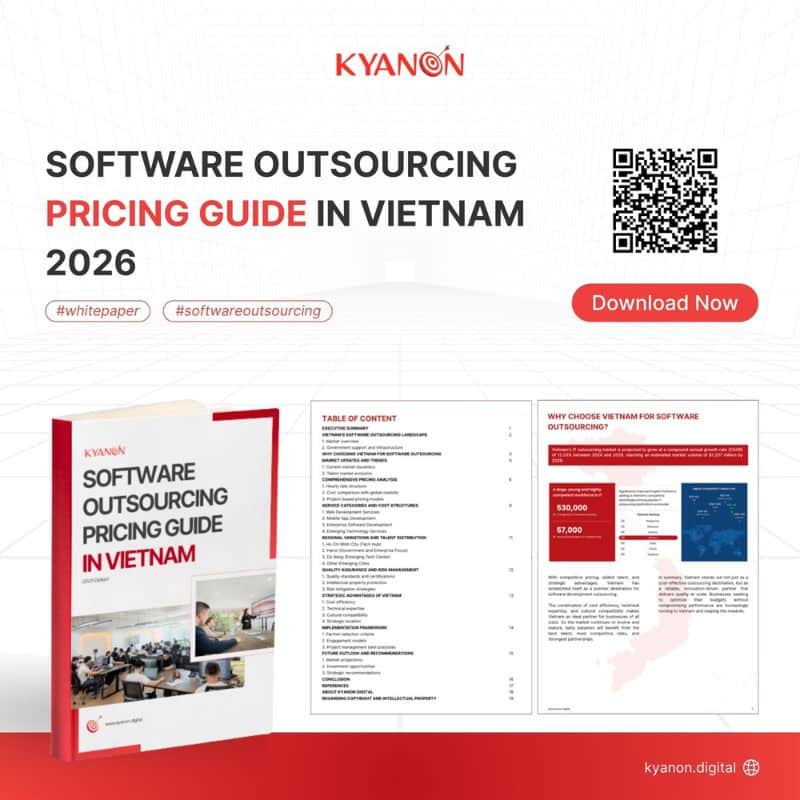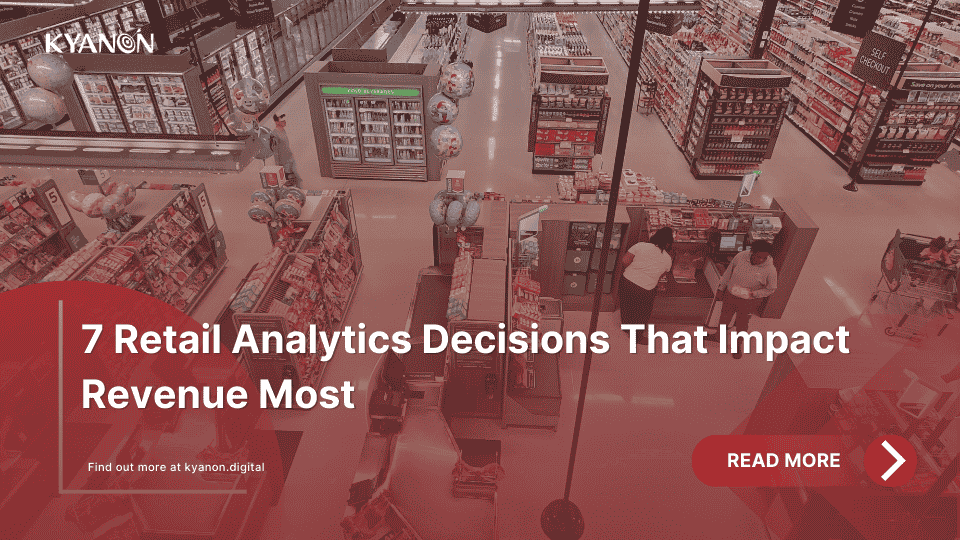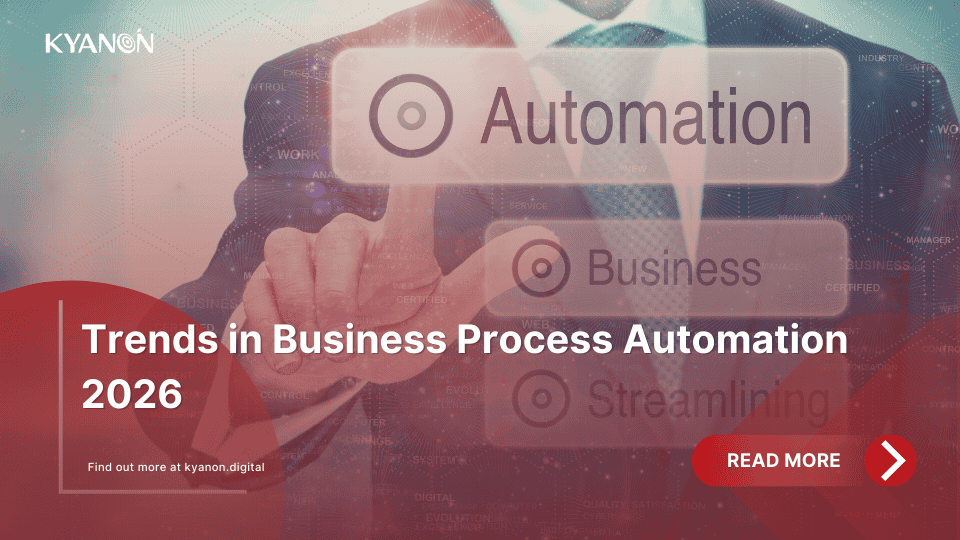Ecommerce in Southeast Asia is growing fast and customers now expect shopping experiences that feel effortless and personal. However, relying on static rules or manual decision-making leaves businesses struggling to anticipate real-time demand shifts and evolving shopper behavior. For ecommerce businesses, the challenge is clear: how do you deliver at scale when consumer preferences change daily? The answer lies in AI predictive analytics.
This blog explores how predictive artificial intelligence serves as a catalyst for intelligent decision-making in ecommerce, enhancing personalization, dynamic pricing and customer experience. Dive in to learn how leveraging predictive artificial intelligence can transform business outcomes and delight customers in Southeast Asia.
Key Takeaways
- AI predictive analytics acts as the intelligence layer of modern ecommerce, enabling personalized recommendations, dynamic pricing and smarter inventory management.
- Predictive artificial intelligence, when combined with conversational tools and automation, improves customer experience, fosters trust, and drives measurable growth in engagement, retention, and revenue.
Further reading:
- The Intelligent Experience Engine: Why Southeast Asia Needs Unified Intelligence
- Future of Digital Commerce with Intelligent Experience Engines in SEA
- AI in Ecommerce and Retail: Trends, Use Cases, and Business Impact
Personalization engine capabilities
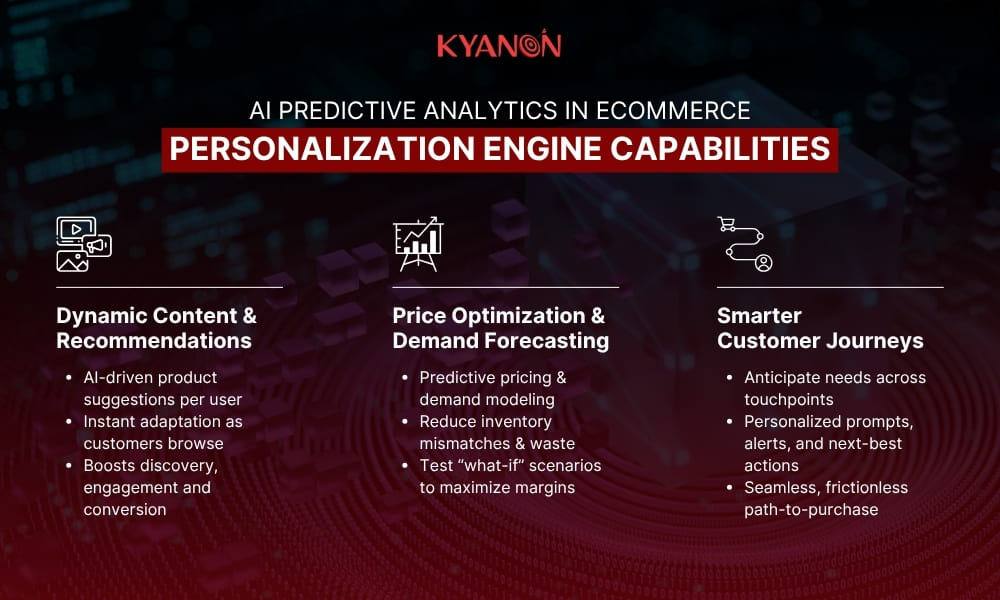
Dynamic recommendations & real-time content
With AI predictive analytics, ecommerce platforms can deliver real-time product suggestions that reflect each shopper’s preferences and intent.
- In Southeast Asia, Lazada reported that nearly 90% of consumers already engage with AI-driven recommendations, showing how personalization directly impacts discovery and conversion (Lazada).
- AI automation in ecommerce ensures that recommendations adapt instantly as customers browse, making each session more relevant.
Price optimization & demand forecasting
Predictive artificial intelligence enables accurate forecasting of demand and dynamic price adjustments to reflect market changes. By integrating sales data, seasonal cycles and competitor benchmarks, AI reduces risk and increases agility.
- Artificial intelligence prediction balances profitability with customer satisfaction by testing elasticity models, ensuring customers perceive fair pricing.
- AI automation in ecommerce helps prevent costly inventory mismatches: by forecasting demand accurately, businesses reduce excess stock and minimize out-of-stock risks, cutting waste cycles by as much as 30% in leading case studies.
- Predictive AI CX can also simulate “what-if” pricing scenarios – for example, how a 5% markdown before a holiday season affects both demand and margins – helping decision-makers act proactively instead of reactively.
Example: Retailers leveraging Google Cloud’s Vertex AI Forecast achieved up to 10% revenue uplift by combining demand prediction with optimized price strategies, proving how AI-driven models outperform manual approaches (Google Cloud).
Smarter customer journeys
Beyond products and pricing, AI predictive analytics helps map the entire path-to-purchase, ensuring each touchpoint feels personalized and timely. From checkout prompts to restock alerts, these interventions shape seamless journeys.
- Predictive AI CX analyzes behavioral signals to anticipate needs before customers express them, enhancing convenience and loyalty.
- Businesses deploying predictive engines report stronger engagement, as AI automation ecommerce reduces friction, recommends next best actions and builds trust through consistently relevant experiences (IBM).
Transform your ideas into reality with our services. Get started today!
Our team will contact you within 24 hours.
Conversational AI integration
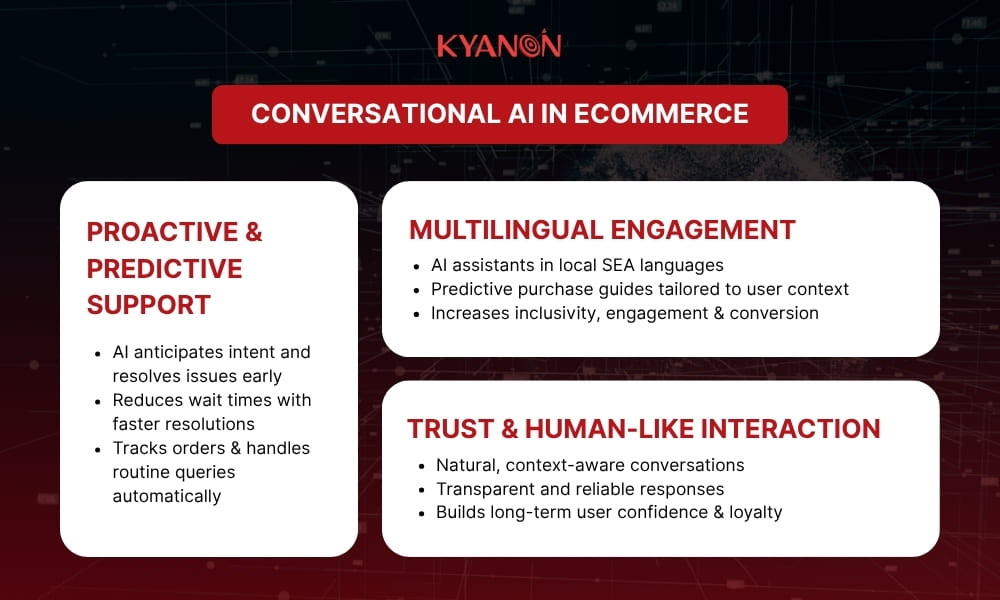
With AI predictive analytics, conversational assistants are reshaping ecommerce by anticipating needs and delivering personalized support at scale.
- Predictive AI CX in customer service allows businesses to proactively resolve issues before they escalate, reducing wait times and ensuring smoother support journeys. By anticipating intent, chatbots can recommend next steps, track orders or resolve routine problems without human intervention.
- Multilingual AI assistants & predictive purchase guides enable ecommerce brands to connect with diverse audiences across Southeast Asia. This reduces friction for non-English speakers, improves engagement and boosts conversion rates by providing tailored recommendations in the customer’s preferred language.
- Conversational AI builds trust by combining interactivity with human-like communication. Natural responses, transparency and context-aware personalization enhance the sense of reliability, encouraging users to depend on digital assistants for product discovery and post-purchase support.
Marketing automation intelligence
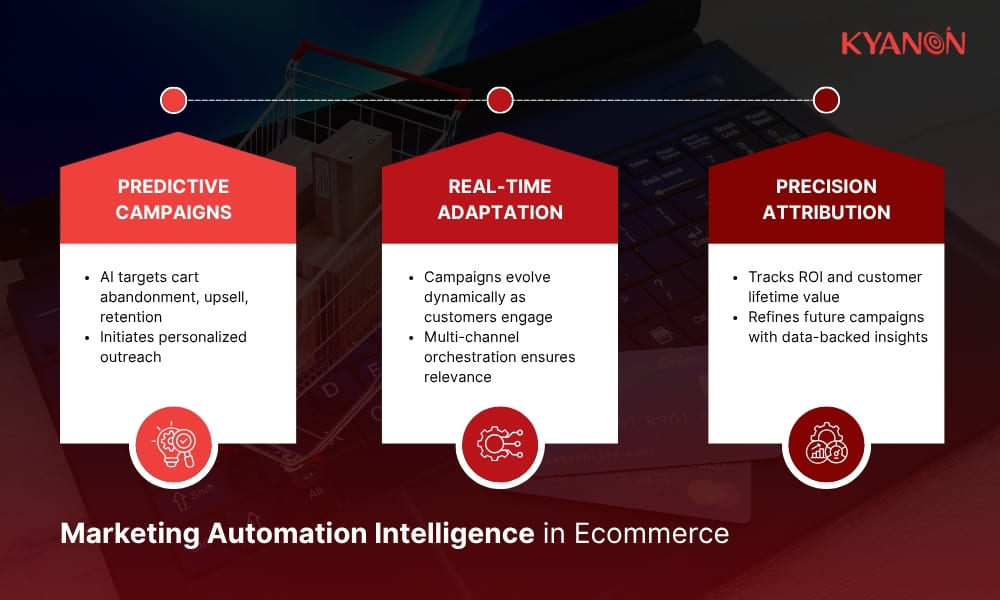
AI predictive analytics is transforming digital marketing into a proactive, intelligence-driven engine, helping ecommerce brands move beyond manual campaigns. By learning from behavioral data and transaction history, predictive models can determine the right message, channel, and timing for each customer.
- Predictive campaigns can address cart abandonment with timely nudges, boost upselling by analyzing purchase history and strengthen retention by identifying at-risk customers, hence witnessing cart recovery improvements with AI-driven automation.
- AI automation in ecommerce allows marketing systems to adapt in real time, adjusting content and offers as customers interact across multiple channels. This dynamic orchestration ensures campaigns remain relevant, increasing click-through and conversion rates.
- By applying predictive artificial intelligence to marketing attribution, brands can track ROI more accurately, identifying which channels or campaigns generate the highest lifetime value customers. This shifts decision-making from guesswork to data-backed precision.
Case Study: How Ulta Beauty apply AI Predictive Analytics in Marketing?

Ulta Beauty leverages SAS Customer Intelligence 360 with AI predictive analytics to consolidate customer data across online and in-store touchpoints, enabling highly targeted personalization at scale. This approach allows the brand to shift from static marketing campaigns to adaptive, customer-centric journeys.
Key capabilities enabled by predictive artificial intelligence include:
- AI-driven personalization – recommendation engines surface relevant products across digital and physical channels, powered by predictive AI CX.
- Automated campaigns – AI automation in ecommerce ensures real-time decisioning and personalized messaging flows.
- Targeted loyalty engagement – predictive segmentation delivers tailored offers that increase loyalty participation and repeat purchases.
- Cross-channel consistency – artificial intelligence prediction models unify SMS, email, mobile app and in-store interactions.
Key metrics:
- 95% of sales generated by returning guests, showing retention impact.
- Significant uplift in purchase frequency among loyalty members.
The case highlights how embedding solutions like SAS Customer Intelligence 360 can help ecommerce leaders move beyond transactional engagement. By combining AI predictive analytics with contextual loyalty strategies, businesses in SEA can capture repeat customers, enhance trust and sustain long-term growth in increasingly competitive markets.
Conclusion
For businesses in Southeast Asia, the opportunity is clear: move beyond static engagement and embrace intelligence-driven strategies that anticipate needs, reduce friction and maximize lifetime value. AI predictive analytics serves as the foundation of this transformation, not just about efficiency – it is about creating seamless experiences that keep customers coming back.
Kyanon Digital, in partnership with SAS, helps enterprises unlock the power of predictive AI CX with proven technology and domain expertise. Whether you’re looking to optimize personalization engines, streamline marketing automation or launch predictive campaigns, our team is ready to guide your journey. Contact Kyanon Digital to request an AI pilot program today and see how predictive artificial intelligence can transform your ecommerce outcomes.

